![]()
“Jesus therefore predicts that God will later send a human being to Earth ...”
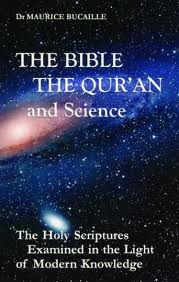
"If the words 'Holy Spirit' (to pneuma to agion) are omitted from the passage, the complete text of John then conveys a meaning which is perfectly clear. It is confirmed moreover, by another text from the same evangelist, the First Letter, where John uses the same word 'Paraclete' simply to mean Jesus, the intercessor at God's side. According to John, when Jesus says (14, 16): 'And I will pray the Father, and he will give you another Paraclete', what He is saying is that 'another' intercessor will be sent to man, as He Himself was at God's side on man's behalf during his earthly life.”
Jesus's last Dialogues
The Paraclete of John's Gospel
“John is the only evangelist to report the episode of the last dialogue with the Apostles. It takes place at the end of the Last supper and before Jesus's arrest. It ends in a very long speech: four chapters in John's Gospel (14 to 17) are devoted to this narration which is not mentioned anywhere in the other Gospels. These chapters of John nevertheless deal with questions of prime importance and fundamental significance to the future outlook. They are set out with all the grandeur and solemnity that characterises the farewell scene between Master and His disciples...
The dominating feature of this narration—seen in the crowning speech—is the view of man's future that Jesus describes, His care in addressing His disciples, and through them the whole of humanity, His recommendations and commandments and His concern to specify who the guide is definitely to be that man must follow after His departure. The text of John's Gospel is the only one to designate Him as Parakletos in Greek, which in English has become 'Paraclete'...
This name or title translated from the Greek is only used in the New Testament by John: he uses it four times in his account of Jesus's speech after the Last Supper (14, 16 and 26; 15, 26; 16, 7) and once in his First Letter (2,1). In John's Gospel the word is applied to the Holy Spirit; in the Letter it refers to Christ. 'Paraclete' was a term in current usage among the Hellenist Jews, First century A.D., meaning 'intercessor', 'defender' (...) Jesus predicts that the Spirit will be sent by the Father and Son. Its mission will be to take the place of the Son in the role he played during his mortal life as a helper for the benefit of his disciples. The Spirit will intervene and act as a substitute for Christ, adopting the role of Paraclete or omnipotent intercessor.'
This commentary therefore makes the Holy Spirit into the ultimate guide of man after Jesus's departure. How does it square with John's text?...
The two Greek verbs 'akoub' and 'laleo' therefore define concrete actions which can only be applied to a being with hearing and speech organs. It is consequently impossible to apply them to the Holy Spirit.
For this reason, the text of this passage from John's Gospel, as handed down to us in Greek manuscripts, is quite incomprehensible, if one takes it as a whole, including the words 'Holy Spirit' in passage 14, 26: 'But the Paraclete, the Holy Spirit, whom the Father will send in my name' etc. It is the only passage in John's Gospel that identifies the Paraclete with the Holy Spirit.
If the words 'Holy Spirit' (to pneuma to agion) are omitted from the passage, the complete text of John then conveys a meaning which is perfectly clear. It is confirmed moreover, by another text from the same evangelist, the First Letter, where John uses the same word 'Paraclete' simply to mean Jesus, the intercessor at God's side. According to John, when Jesus says (14, 16): 'And I will pray the Father, and he will give you another Paraclete', what He is saying is that 'another' intercessor will be sent to man, as He Himself was at God's side on man's behalf during his earthly life.
According to the rules of logic therefore, one is brought to see in John's Paraclete a human being like Jesus, possessing the faculties of hearing and speech formally applied in John's Greek text, Jesus therefore predicts that God will later send a human being to Earth to take up the role defined by John i.e. to be a prophet who hears God's words and repeats his message to man. This is the logical interpretation of John's texts arrived at if one attributes to the words their proper meaning.”
Maurice Bucaille, The Bible, the Qur'n, and Science
Islamic Book Service (January 1, 2001), pp. 112-5
“I am the Adi Shakti (Holy Spirit/Paraclete). I am the one who has come on this Earth for the first time in this form to do this tremendous task . The more you understand this the better it would be. You will change tremendously. I knew I'll have to say that openly one day and we have said it. But now it is you people who have to prove it that I am that!"
The Paraclete Shri Mataji
Sydney, Australia—March 21, 1983
"As we have observed, one of Jesus' most startling roles with respect to the world was to show up the emptiness of its pretensions, to expose by his light the darkness of the world for what it is (3:19-21; 7:7; 15:22, 24). ... how will that convicting work be continued? It is continued by the Paraclete, who drives home this conviction in the world precisely because Jesus is no longer present to discharge this task. Undoubtedly this kind of conviction is driven home to the world primarily through Jesus' followers who, empowered by the Holy Spirit, live their lives in such growing conformity to Christ that the same impact on the world is observed as when Jesus himself lived out his life before the world.” (Carson 1990, 538)
“I know all ... but I have not revealed it so far. It will be slowly revealed by me because people have not been prepared yet to become capable of absorbing it.”
The Paraclete Shri Mataji
Bombay, India—February 26, 1987
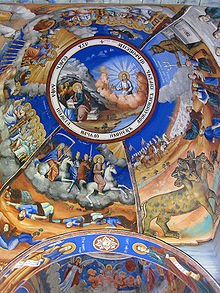
Apocalypse depicted in Christian Orthodox
traditional fresco scenes in Osogovo
Monastery, Republic of Macedonia
Apocalypse is “A disclosure of something hidden from the majority of mankind in an era dominated by falsehood and misconception, i.e. the veil to be lifted.” The word is derived from the Greek apokalupsis, a term applied to revelation or disclosure of what already exists, though hitherto it has been hidden, or only imperfectly known.” The Fourth Gospel portrays Jesus giving his disciples the assurance that the Spirit/Paraclete will be the voice of the glorified Jesus himself. I have said these things while I am still with you. But the Advocate, the Holy Spirit, whom the Father will send in my name, will teach you everything, and remind you of all that I have said to you. (Jn 14.25-6) The Spirit/Paraclete will bring the past to memory, but the Spirit/Paraclete will be the voice of the glorified Jesus teaching in new situations in the present. However, this new teaching will be anchored in the Jesus of the past, because the Spirit/Paraclete will be speaking anew on behalf of Jesus.” (Rush 2009, 23).traditional fresco scenes in Osogovo
Monastery, Republic of Macedonia
Apokalypsis: The fulfillment of eschatological instruction by the Paraclete in the Age to Come promised by Jesus at the Last Supper
“The original meaning of the word ‘apocalypse’, derived from the Greek apokalypsis, is in fact not the cataclysmic end of the world, but an ‘unveiling’, or ‘revelation’, a means whereby one gains insight into the present.” (Kovacs, 2013, 2)
An apocalypse (Greek: apokalypsis meaning “an uncovering”) is in religious contexts knowledge or revelation, a disclosure of something hidden, “a vision of heavenly secrets that can make sense of earthly realities.” (Ehrman 2014, 59)
“An apocalypse (Ancient Greek: apokalypsis ... literally meaning "an uncovering") is a disclosure or revelation of great knowledge. In religious and occult concepts, an apocalypse usually discloses something very important that was hidden or provides what Bart Ehrman has termed, "A vision of heavenly secrets that can make sense of earthly realities". Historically, the term has a heavy religious connotation as commonly seen in the prophetic revelations of eschatology obtained through dreams or spiritual visions.” Wikipedia 2021-01-09
An apocalypse (Greek: apokalypsis meaning “an uncovering”) is in religious contexts knowledge or revelation, a disclosure of something hidden, “a vision of heavenly secrets that can make sense of earthly realities.” (Ehrman 2014, 59)
“An apocalypse (Ancient Greek: apokalypsis ... literally meaning "an uncovering") is a disclosure or revelation of great knowledge. In religious and occult concepts, an apocalypse usually discloses something very important that was hidden or provides what Bart Ehrman has termed, "A vision of heavenly secrets that can make sense of earthly realities". Historically, the term has a heavy religious connotation as commonly seen in the prophetic revelations of eschatology obtained through dreams or spiritual visions.” Wikipedia 2021-01-09
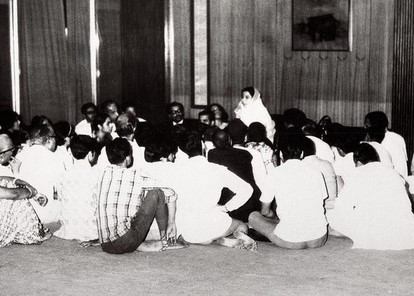
Shri Mataji Nirmala Devi (1923-2011) was Christian by birth, Hindu by marriage, and Paraclete by duty.
Total number of recorded talks 3058: Public Programs 1178, Pujas 651, and other (private conversations) 1249
“The Paraclete will come (15:26; 16:7, 8, 13) as Jesus has come into the world (5:43; 16:28; 18:37)... The Paraclete will take the things of Christ (the things that are mine, ek tou emou) and declare them (16:14-15). Bishop Fison describes the humility of the Spirit, 'The true Holy Spirit of God does not advertise Herself: She effaces Herself and advertises Jesus.' ...
It is by the outgoing activity of the Spirit that the divine life communicates itself in and to the creation. The Spirit is God-in-relations. The Paraclete is the divine self-expression which will be and abide with you, and be in you (14:16-17). The Spirit's work is described in terms of utterance: teach you, didasko (14:26), remind you, hypomimnesko (14:26), testify, martyro (15:26), prove wrong, elencho (16:8), guide into truth, hodego (16:13), speak, laleo (16:13, twice), declare, anangello (16:13, 14, 15). The johannine terms describe verbal actions which intend a response in others who will receive (lambano), see (theoreo), or know (ginosko) the Spirit. Such speech-terms link the Spirit with the divine Word. The Spirit's initiatives imply God's personal engagement with humanity. The Spirit comes to be with others; the teaching Spirit implies a community of learners; forgetful persons need a prompter to remind them; one testifies expecting heed to be paid; one speaks and declares in order to be heard. The articulate Spirit is the correlative of the listening, Spirit-informed community.
The final Paraclete passage closes with a threefold repetition of the verb she will declare (anangello), 16:13-15. The Spirit will declare the things that are to come (v.13), and she will declare what is Christ's (vv. 14, 15). The things of Christ are a message that must be heralded...
The intention of the Spirit of truth is the restoration of an alienated, deceived humanity... The teaching role of the Paraclete tends to be remembered as a major emphasis of the Farewell Discourses, yet only 14:26 says She will teach you all things. (Teaching is, however, implied when 16:13-15 says that the Spirit will guide you into all truth, and will speak and declare.) Franz Mussner remarks that the word used in 14:26, didaskein, "means literally 'teach, instruct,' but in John it nearly always means to reveal.” (Stevick 2011, 292-7)
The Holy Spirit as feminine: Early Christian testimonies and their interpretation,
Johannes van Oort, Radboud University, Nijmegen, The Netherlands
Department of Church History and Church Polity, Faculty of Theology, University of Pretoria, South Africa
Total number of recorded talks 3058: Public Programs 1178, Pujas 651, and other (private conversations) 1249
“The Paraclete will come (15:26; 16:7, 8, 13) as Jesus has come into the world (5:43; 16:28; 18:37)... The Paraclete will take the things of Christ (the things that are mine, ek tou emou) and declare them (16:14-15). Bishop Fison describes the humility of the Spirit, 'The true Holy Spirit of God does not advertise Herself: She effaces Herself and advertises Jesus.' ...
It is by the outgoing activity of the Spirit that the divine life communicates itself in and to the creation. The Spirit is God-in-relations. The Paraclete is the divine self-expression which will be and abide with you, and be in you (14:16-17). The Spirit's work is described in terms of utterance: teach you, didasko (14:26), remind you, hypomimnesko (14:26), testify, martyro (15:26), prove wrong, elencho (16:8), guide into truth, hodego (16:13), speak, laleo (16:13, twice), declare, anangello (16:13, 14, 15). The johannine terms describe verbal actions which intend a response in others who will receive (lambano), see (theoreo), or know (ginosko) the Spirit. Such speech-terms link the Spirit with the divine Word. The Spirit's initiatives imply God's personal engagement with humanity. The Spirit comes to be with others; the teaching Spirit implies a community of learners; forgetful persons need a prompter to remind them; one testifies expecting heed to be paid; one speaks and declares in order to be heard. The articulate Spirit is the correlative of the listening, Spirit-informed community.
The final Paraclete passage closes with a threefold repetition of the verb she will declare (anangello), 16:13-15. The Spirit will declare the things that are to come (v.13), and she will declare what is Christ's (vv. 14, 15). The things of Christ are a message that must be heralded...
The intention of the Spirit of truth is the restoration of an alienated, deceived humanity... The teaching role of the Paraclete tends to be remembered as a major emphasis of the Farewell Discourses, yet only 14:26 says She will teach you all things. (Teaching is, however, implied when 16:13-15 says that the Spirit will guide you into all truth, and will speak and declare.) Franz Mussner remarks that the word used in 14:26, didaskein, "means literally 'teach, instruct,' but in John it nearly always means to reveal.” (Stevick 2011, 292-7)
The Holy Spirit as feminine: Early Christian testimonies and their interpretation,
Johannes van Oort, Radboud University, Nijmegen, The Netherlands
Department of Church History and Church Polity, Faculty of Theology, University of Pretoria, South Africa
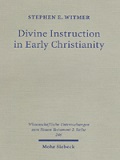

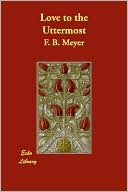
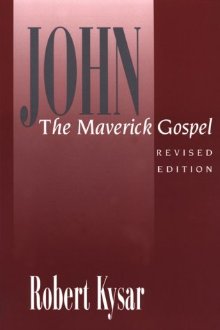
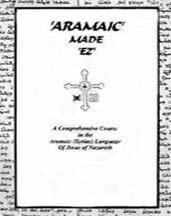

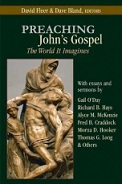
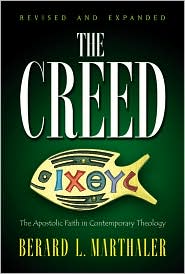
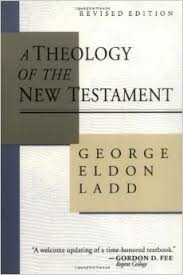
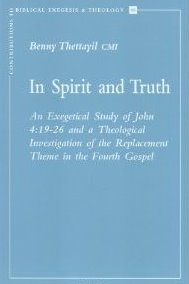

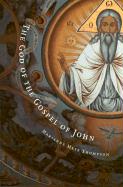
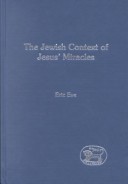
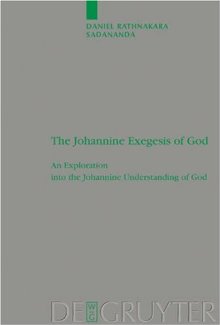

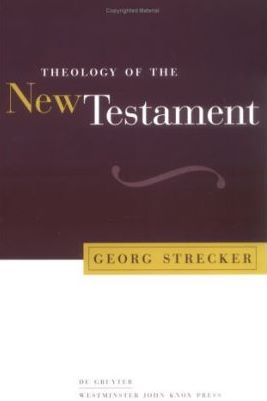
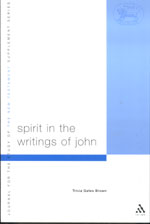
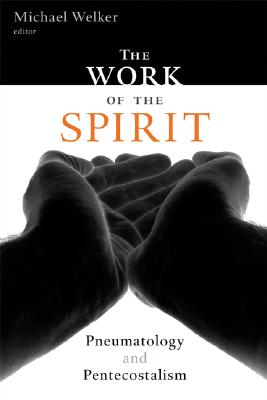
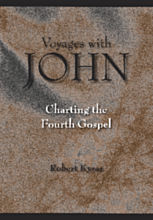
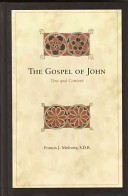
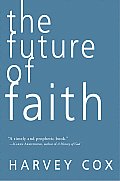
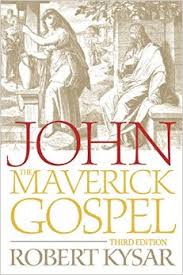
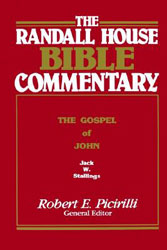
 “The teaching of the Paraclete, as the continuation of Jesus' teaching, must also be understood as the fulfillment of the promise of eschatological divine instruction.”
“The teaching of the Paraclete, as the continuation of Jesus' teaching, must also be understood as the fulfillment of the promise of eschatological divine instruction.”Stephen E. Witmer, Divine instruction in Early Christianity
“Jesus therefore predicts that God will later send a human being to Earth to take up the role defined by John .i.e. to be a prophet who hears God's words and repeats his message to man.”
M. Bucaille, The Bible, the Qur'n, and Science
“And when Jesus foreannounced another Comforter, He must have intended a Person as distinct and helpful as He had been.”
F. B. Meyer, Love to the Utmost
“The Paraclete has a twofold function: to communicate Christ to believers and, to put the world on trial.”
Robert Kysar, John The Meverick Gospel
“But She—the Spirit, the Paraclete...—will teach you everything.”
Danny Mahar, Aramaic Made EZ)
“Grammatical nonsense but evidence of the theological desire to defeminize the Divine.”
Lucy Reid, She Changes Everything
“The functions of the Paraclete spelled out in verses 13-15... are all acts of open and bold speaking in the highest degree.”
David Fleer, Preaching John's Gospel
“The reaction of the world to the Paraclete will be much the same as the world's reaction was to Jesus.”
Berard L. Marthaler, The Creed: The Apostolic Faith in Contemporary Theology
Bultmann calls the “coming of the Redeemer an 'eschatological event,' 'the turning-point of the ages.”
G. Ladd, A Theology of the New Testament
“The Paraclete equated with the Holy Spirit, is the only mediator of the word of the exalted Christ.”
Benny Thettayil, In Spirit and Truth
“The divine Paraclete, and no lessor agency, must show the world how wrong it was about him who was in the right.”
Daniel B. Stevick , Jesus and His Own: A Commentary on John 13-17
Stephen Smalley asserts that “The Spirit-Paraclete ... in John's Gospel is understood as personal, indeed, as a person.”
Marianne Thompson, The God of the Gospel of John
“The Messiah will come and the great age of salvation will dawn (for the pious).”
Eric Eve, The Jewish context of Jesus' Miracles
“The remembrance is to relive and re-enact the Christ event, to bring about new eschatological decision in time and space.”
Daniel Rathnakara Sadananda, The Johannine Exegesis of God
“The Spirit acts in such an international situation as the revealer of 'judgment' on the powers that rule the world.”
Michael Welker, God the Spirit
The Paraclete's “Appearance means that sin, righteousness, and judgment will be revealed.”
Georg Strecker, Theology of the New Testament
“While the Spirit-Paraclete is the true broker, the brokers they rely on are impostors.”
T. G. Brown, Spirit in the writings of John
“The pneumatological activity ... of the Paraclete ... may most helpfully be considered in terms of the salvific working of the hidden Spirit.”
Michael Welker, The work of the Spirit
“The pneuma is the peculiar power by which the word becomes the words of eternal life.”
Robert Kysar, Voyages with John
“The gift of peace, therefore, is intimately associated with the gift of the Spirit-Paraclete.”
Francis J. Moloney, The Gospel of John
“This utopian hope, even when modestly expressed, links Jesus and the prophets to a much wider history of human longing.”
Harvey Cox, The Future of Faith
“Because of the presence of the Paraclete in the life of the believer, the blessings of the end-times—the eschaton—are already present.”
Robert Kysar, John
“They are going, by the Holy Spirit's power, to be part of the greatest miracle of all, bringing men to salvation.”
R. Picirilli, The Randall House Bible Commentary
“The Kingdom of God stands as a comprehensive term for all that the messianic salvation included... is something to be sought here and now (Mt. 6:33) and to be received as children receive a gift (Mk. 10:15 = Lk. 18:16-17).”
G. Ladd, A Theology of the New Testament
Disclaimer: Our material may be copied, printed and distributed by referring to this site. This site also contains copyrighted material the use of which has not always been specifically authorized by the copyright owner. We are making such material available to our readers under the education and research provisions of "fair use" in an effort to advance freedom of inquiry for a better understanding of religious, spiritual and inter-faith issues. The material on this site is distributed without profit. If you wish to use copyrighted material for purposes other than “fair use” you must request permission from the copyright owner.